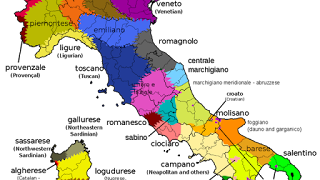History Book Club
Manifest Destiny:
The Presidency of
James K. Polk
Wednesday, January 31. 2018
Wednesday, January
31, 2018: Manifest Destiny: The 19th
century period of American expansion that the United States not only could, but
was destined to, stretch from coast to coast. Western settlement, Native
American removal and war with Mexico. Louisiana Purchase, Lewis and Clark
Expedition, Missouri Compromise, Oregon Territory, Indian Wars, Union Pacific
Railway, Texas, California… [Suggested by
Sam Coulbourn]
Merry, Robert W. A
Country of Vast Designs: James K. Polk, the Mexican War and the Conquest of the
American Continent. 2009, New
York , NY
James Knox Polk, in just one term, from 1845 to 1849, made a
huge impact upon the United States ,
expanding America with Texas , New Mexico , Nevada , Wyoming , Utah , Washington , Oregon , Idaho and Arizona
Polk was a chip off the old block of Old Hickory, Andrew
Jackson. A Democrat from Tennessee Jackson
Polk’s predecessor, the renegade Whig John Tyler, had set
the stage for annexation of the Republic
of Texas into the Union . The prospect of annexing Texas
appeared as part of an overall scheme to extend the United
States to the Pacific Ocean, at the same time cutting off
a possible British scheme to connect Canada
with their Oregon territory, and then perhaps
take over California
Slave states and Abolition states saw Texas Texas Texas
Westward expansion
Scott wrote letters to the Secretary of War and shot off his
mouth as if he thought he was bulletproof, even though he himself was a Whig,
working for a Democrat in the Executive
Mansion
However, Polk didn’t fire Scott—he simply elevated another
general, Zachary Taylor, and sent him down to Texas
There was a lot of opposition in the country to war with Mexico Mexico
The War with Mexico
lasted 17 months, and Scott did get back in Polk’s good graces and invaded and
captured Mexico City
At about the same time the Americans negotiated with the
British and finally achieved a settlement that gave the U.S. the division with Canada around Vancouver
Island that exists today.
Still more forces were at work in Alta California, now known
as the State of California, and that became a State in 1849.
Perhaps no other president presents such a great difference
between actual accomplishment and popular recognition. However, America ’s
eleventh president’s accomplishments included a tariff policy that led to
prosperity; his ‘Polk Doctrine’ [expounding U.S.
resistance to European meddling in the affairs of the Western Hemisphere] has
been approved and extended; his expansion policy gave the United States
S.W. Coulbourn
HISTORY
BOOK CLUB TOPICS FOR 2018
Hernan Cortes
Wednesday, February
28, 2018: Famous Travelers and
Adventurers before the 20th Century—their lives and stories. Marco
Polo, Christopher Columbus, Lewis and Clark, Stanley and Livingstone, more. [Suggested by Walt Frederick]
Wednesday, March 28,
2018: The U.S. Navy in Asia. The Asiatic Squadron. The Yangtze Patrol. Patrolling
the Philippine Islands, “China Sailors”, World War II, The Seventh Fleet. [Suggested by Walt Frederick]
Wednesday, April 25, 2018: A look at the world and times of Jane Austen.
Rockport Public Library is celebrating “Austen in April”. Read about the life of Austen, or focus upon
England in the early 1800s, the Royal Navy at that time, the gentle English
world Jane lived in. Feel free to read Sense and Sensibility, Pride
and Prejudice, Persuasion, or any of her novels to gather a sense of
Jane and her world. [Suggested by
Christiann Guibeau]
Wednesday, May 30,
2018: A History of Public Relations. Managing
the news, propaganda, image-building. Hitler’s Joseph Goebbels. Ancient
persuasive techniques. How information, false. Tainted or factual, can be used
to elect leaders, start wars, and more. [Suggested
by Sam Coulbourn]
Wednesday, June 27,
2018: The History of Language. Can you understand the English spoken by
Chaucer? [WHAN that Aprille with his
shoures soote; The droghte of Marche
hath perced to the roote, And bathed every veyne in swich licour,]
Choose any language and learn how it grew from its ancient roots, how it
absorbed other languages, how it spread, and its variations in use in the world
today. Did you know that only one in 40 Italians spoke Italian in 1861? What language is most widely spoken in the
world today? How are languages changing in modern times? [Suggested by Sam Coulbourn]
Wednesday, July 25,
2018: Immigration to America. How
did we all get here? Read about the
history of immigration, at any stage – from first settlers to the great
immigration waves of the 19th and early 20th centuries;
victims of the Irish Potato famine, Jews fleeing persecution in Europe,
Europeans suffering poverty in their countries, Africans brought here as
slaves, Chinese brought here to build railroads; Fugitives of war everywhere;
Mexicans and Central Americans coming to pick crops. Read about immigration
policies and national drives to keep out or encourage immigration. [Suggested by Walt Frederick.]
Wednesday, August 29,
2018. Let’s hear your suggestion for a history topic!









No comments:
Post a Comment